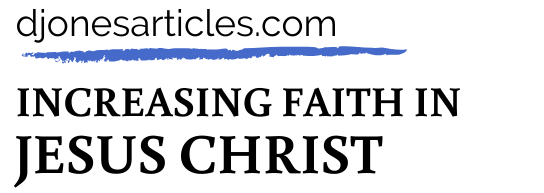When we consider the word pride we might see positive aspects such as pride in our families, schools, nation, military, teams, company, workers, etc. But at the same time we have experienced pride carried too far in competitive sports and other events where people have been seriously hurt because of the enmity or hatred generated toward those on the “other side”.
Pride Defined in the Scriptures
In the scriptures pride is an unrighteous quality. Being prideful is self-centeredness, conceit, boastfulness, arrogance, or haughtiness. All of these are elements of the sin of pride but the heart or core of pride is enmity—enmity toward God and enmity toward our fellowmen. Enmity means “hatred toward, hostility to, or a state of opposition.” It is that enmity or hatred that can destroy us spiritually. Pride is essentially competitive in nature. We pit our will against God’s. When we direct our pride toward God it is in the spirit of my will and not thine be done. As the apostle Paul said, “For all seek their own, not the things which are Jesus Christ’s.” (Philippians 2: 21 in the Bible)
Enmity Toward God and Mankind
Our enmity toward God takes on many labels, such as rebellion, hard-heartedness, stiff-neckedness, unrepentance, easily offended, and sign seekers. The proud wish God would agree with them. They aren’t interested in changing their opinions to agree with God’s. Another major portion of this very prevalent sin of pride is enmity toward our fellowmen. We are tempted daily to elevate ourselves above others and diminish them. The proud make every man their adversary by pitting their intellects, opinions, works, wealth, talents, or any other worldly measuring device against others. In the words of C. S. Lewis: “Pride gets no pleasure out of having something, only out of having more of it than the next man. … It is the comparison that makes you proud: the pleasure of being above the rest. Once the element of competition has gone, pride has gone.” (Mere Christianity, New York: Macmillan, )
The Prideful are Concerned About Men’s Judgment
The proud stand more in fear of men’s judgment than of God’s judgment. What will men think of me? weighs heavier than What will God think of me? “And behold, how oft you have transgressed the commandments and the laws of God, and have gone on in the persuasions of men. For, behold, you should not have feared man more than God…” (Doctrine & Covenants 3: 6-7 p. 6) When pride has a hold on our hearts, we lose our independence of the world and deliver our freedoms to the bondage of men’s judgment. The world shouts louder than the whisperings of the Holy Ghost. The reasoning of men overrides the revelations of God, and the proud let go of the word of God.
We See Pridefulness in Others Not Ourselves
Pride is a sin that can readily be seen in others but is rarely admitted in ourselves. Most of us consider pride to be a sin of those on the top, such as the rich and the learned, looking down at the rest of us. There is, however, a far more common ailment among us and that is pride from the bottom looking up. It is manifest in many ways such as faultfinding, gossiping, backbiting, murmuring, living beyond our means, envying, coveting, withholding gratitude and praise that might lift another, and being unforgiving and jealous. Another face of pride is contention. Arguments, fights, unrighteous dominion, divorces, spouse abuse, riots, and disturbances all fall into this category of pride. Contention in our families drives the Spirit of the Lord away. It also drives many of our family members away. Contention ranges from a hostile spoken word to worldwide conflicts. “Only by pride cometh contention…” (Proverbs 13: 10 in the Bible)
Opposite of Pride
The antidote for pride is humility, teachableness, meekness, submissiveness, kindness, loving, more interested in the success of others than ourselves. A prophet has said, “For the natural man is an enemy to God, and has been from the fall of Adam, and will be, forever and ever, unless he yields to the inticings of the Holy Spirit, and putteth off the natural man and becometh a saint through the atonement of Christ the Lord, and becometh as a child, submissive, meek, humble, patient, full of love,..” (Mosiah 3: 19 p. 153 in the Book of Mormon).
May each of us replace unrighteous pride with these qualities and draw closer to God.
Some of the article was taken from remarks by Ezra Taft Benson, Liahona Magazine, May 1989
